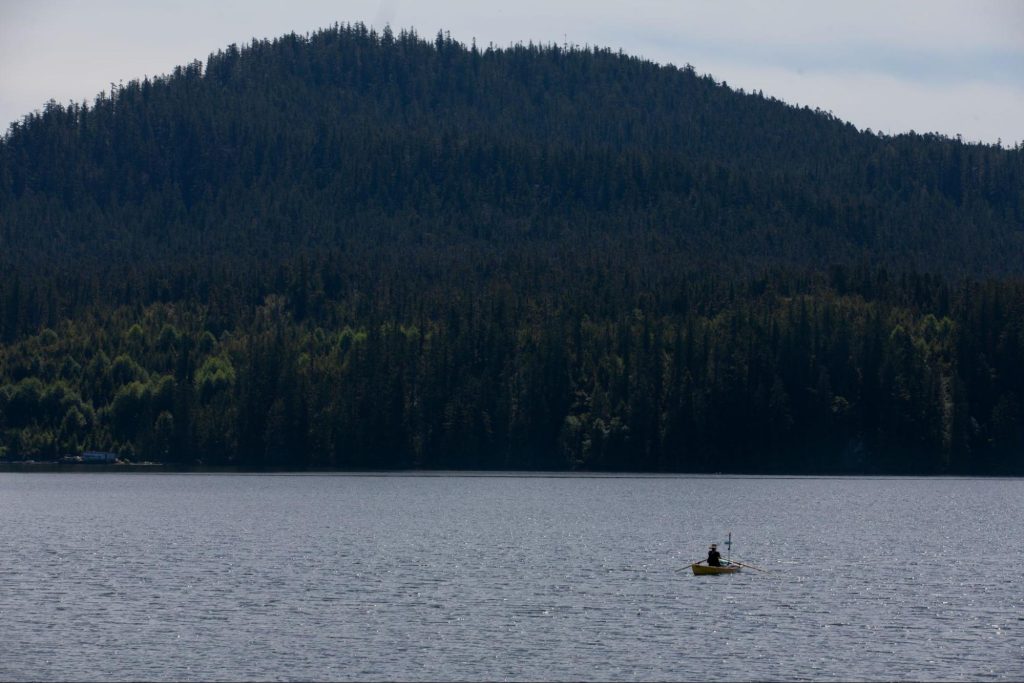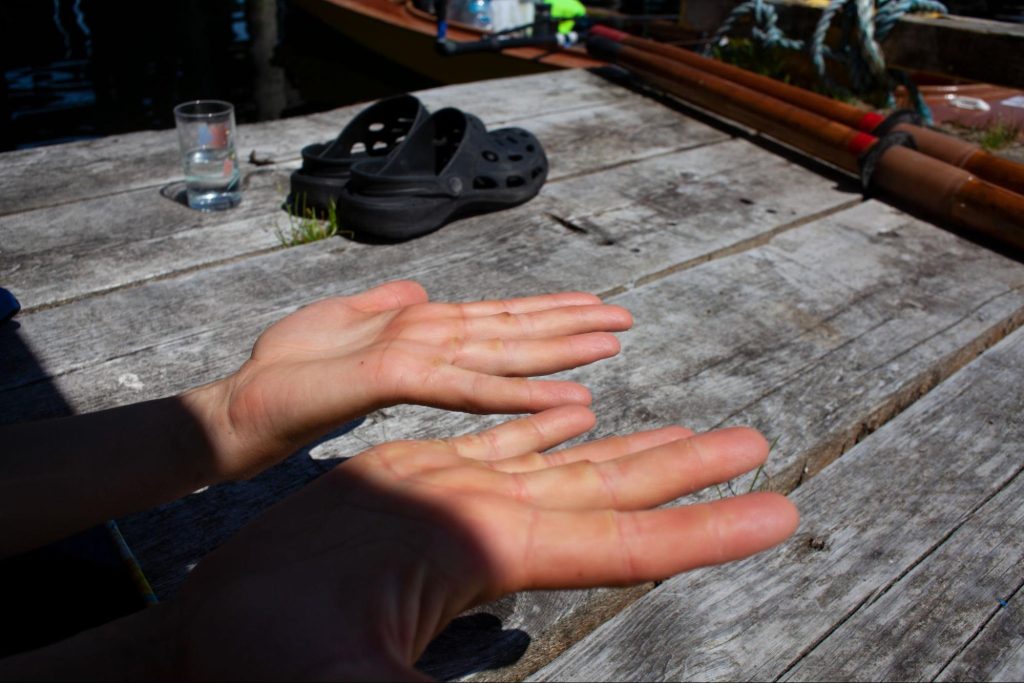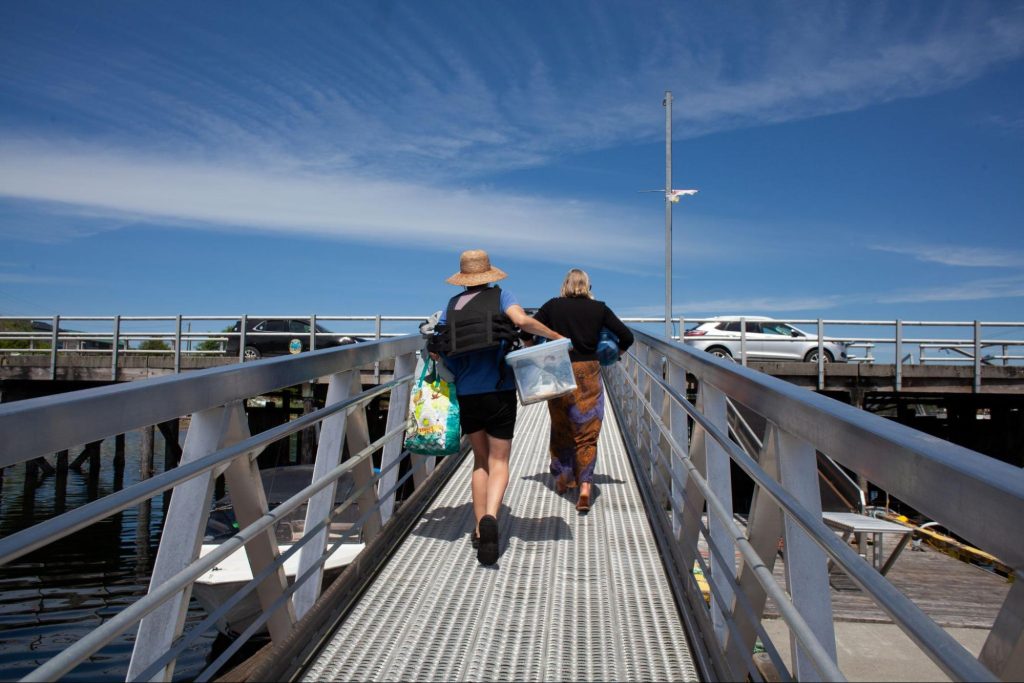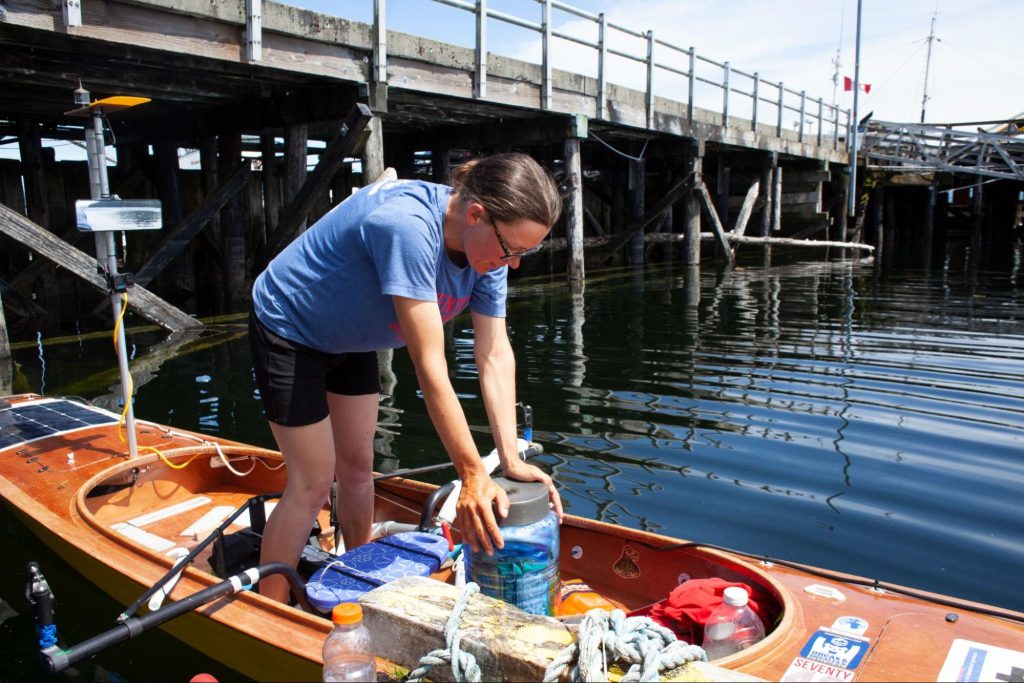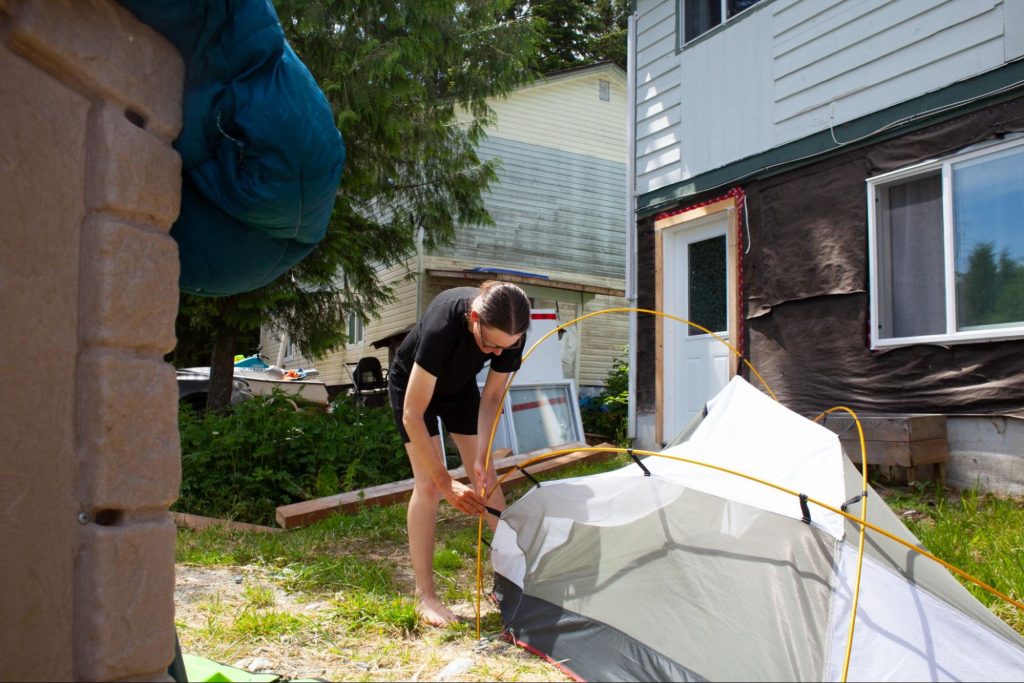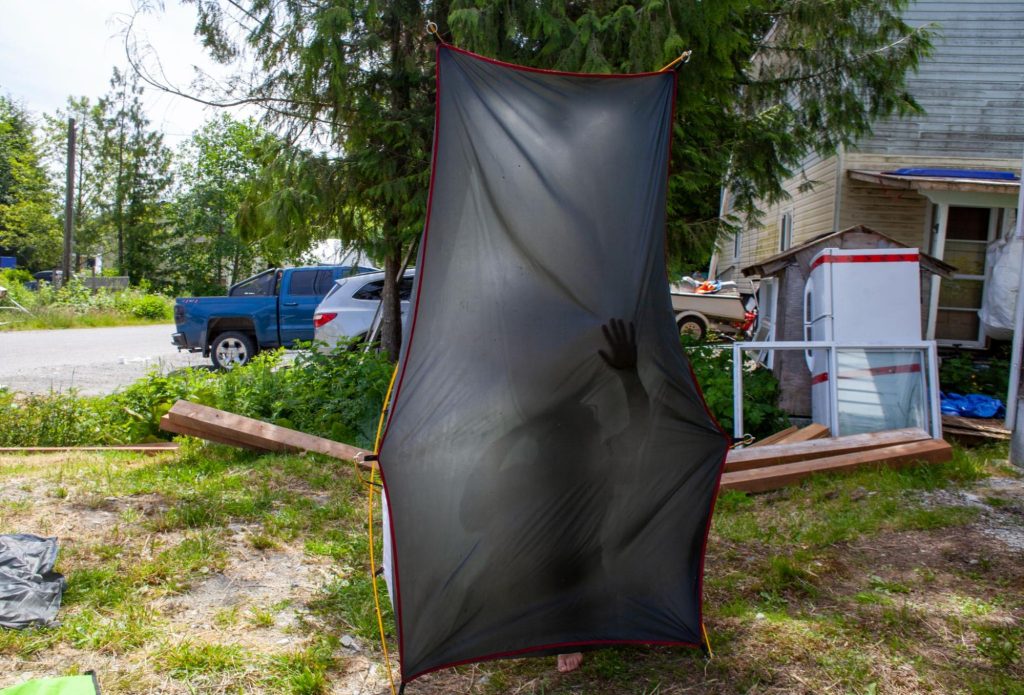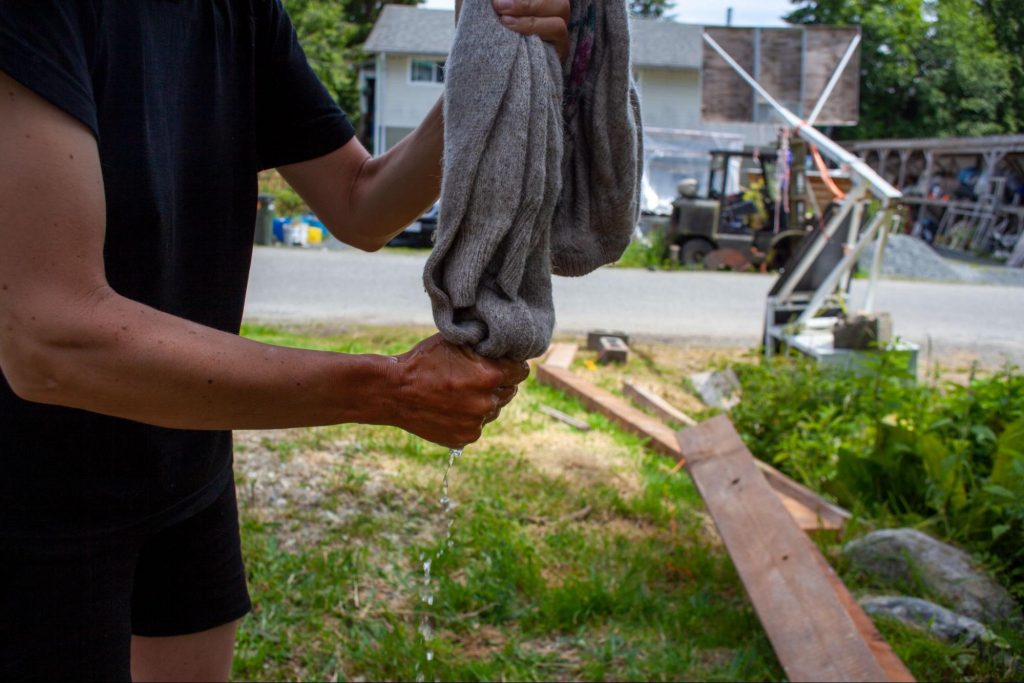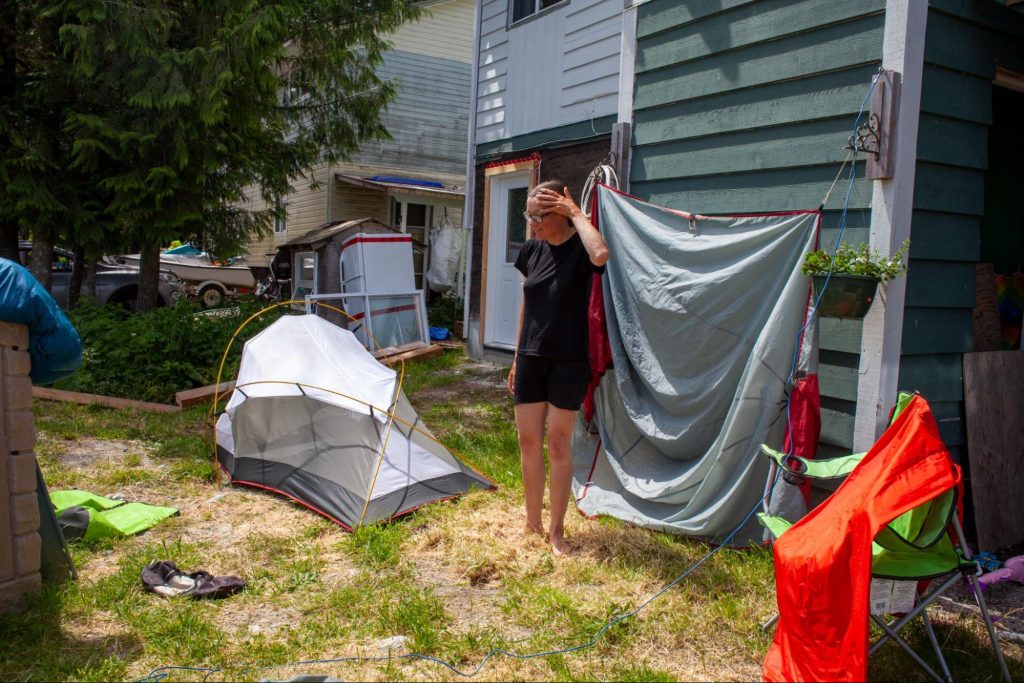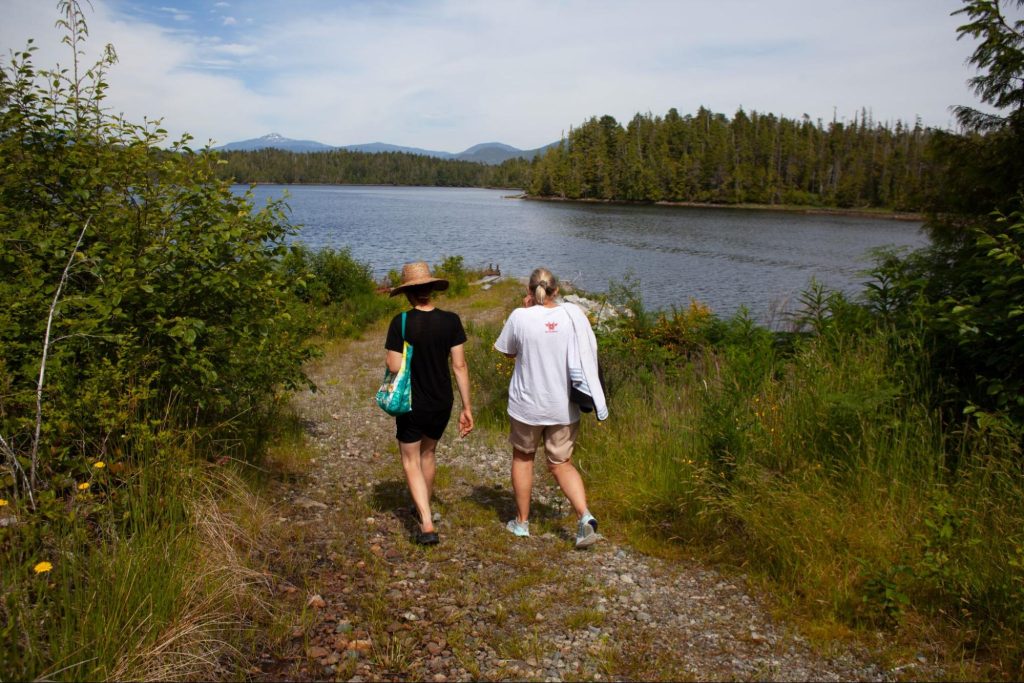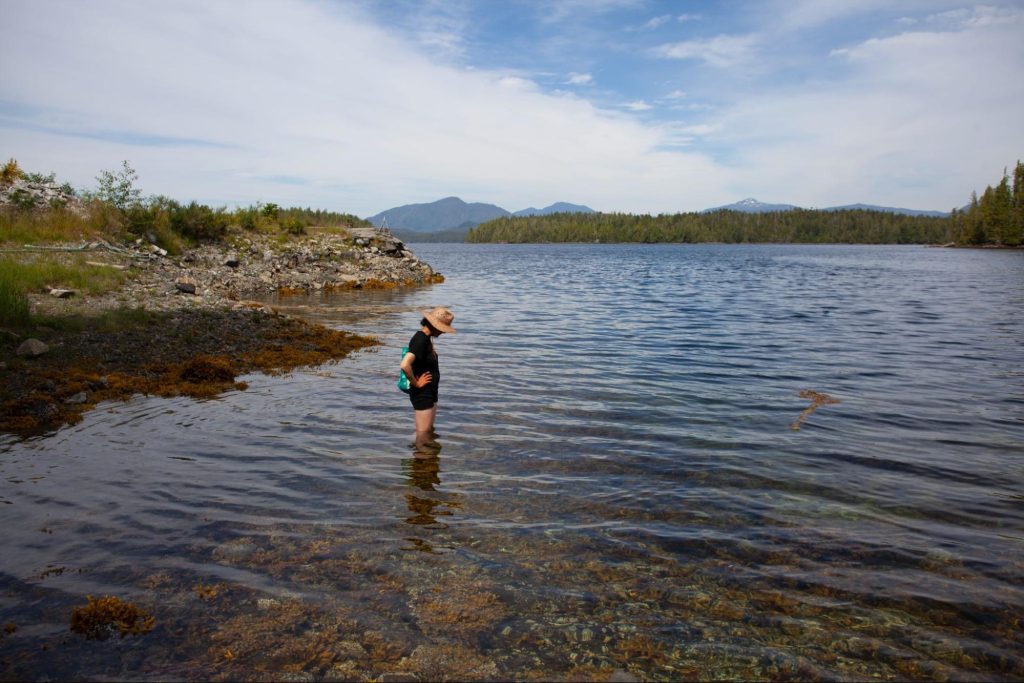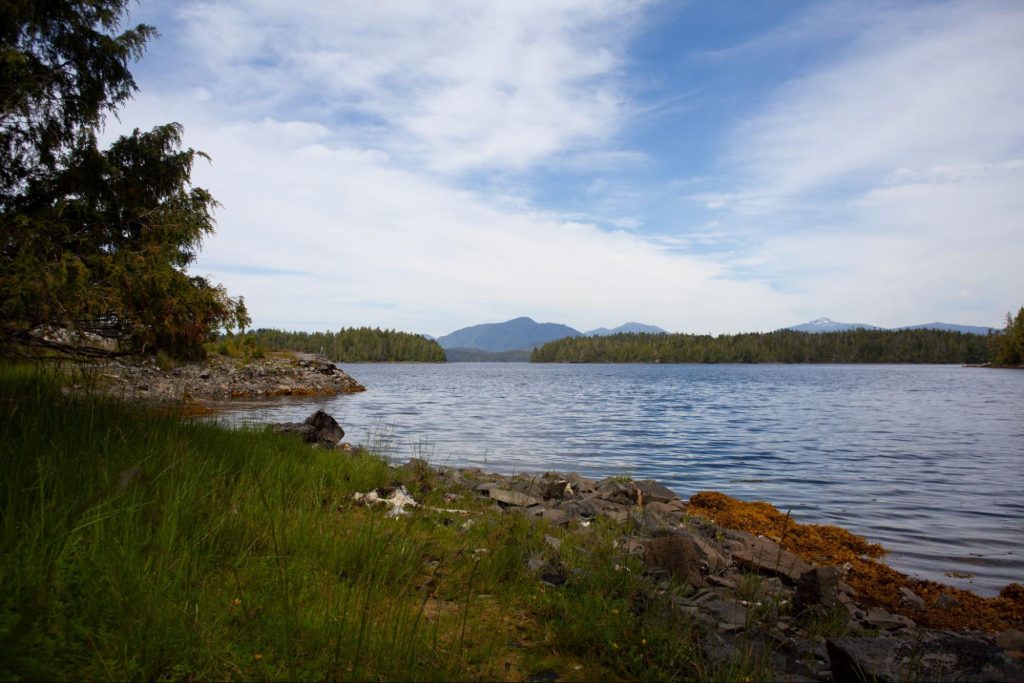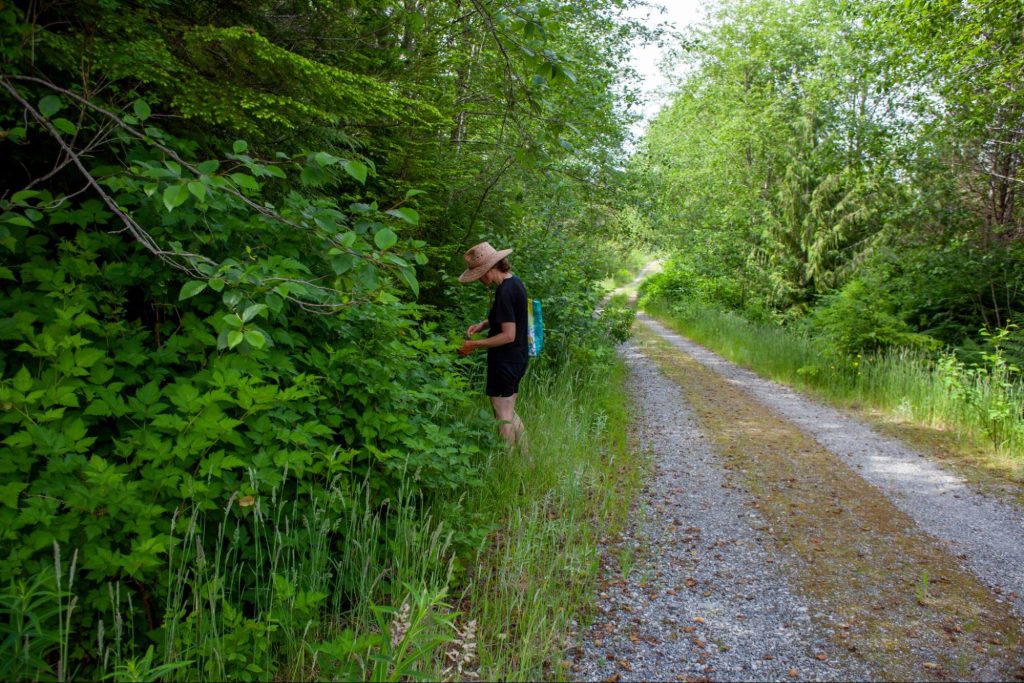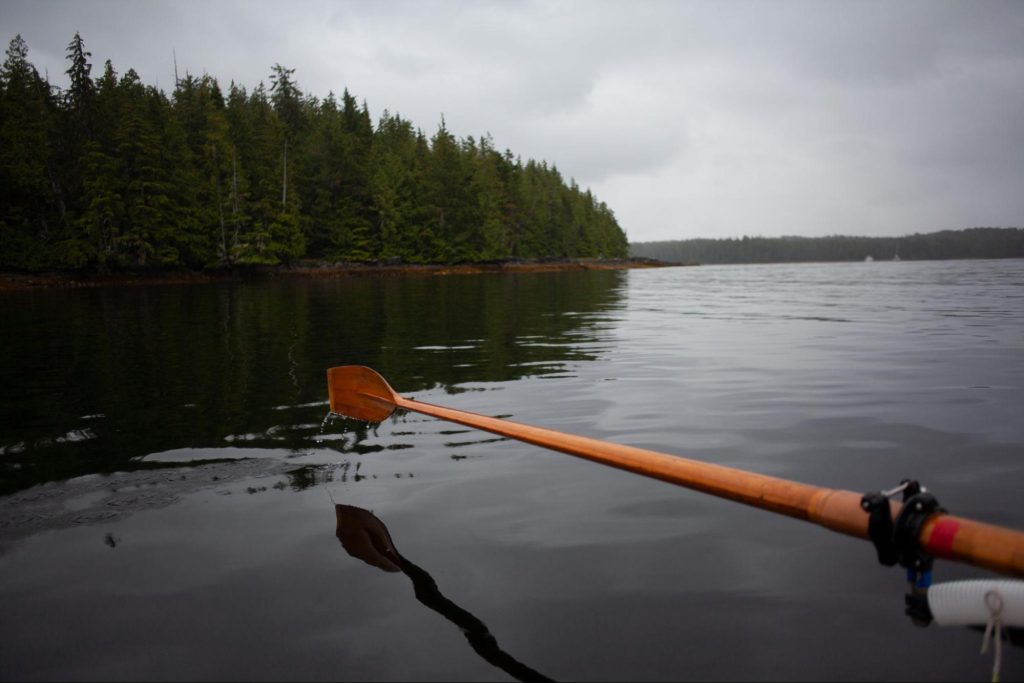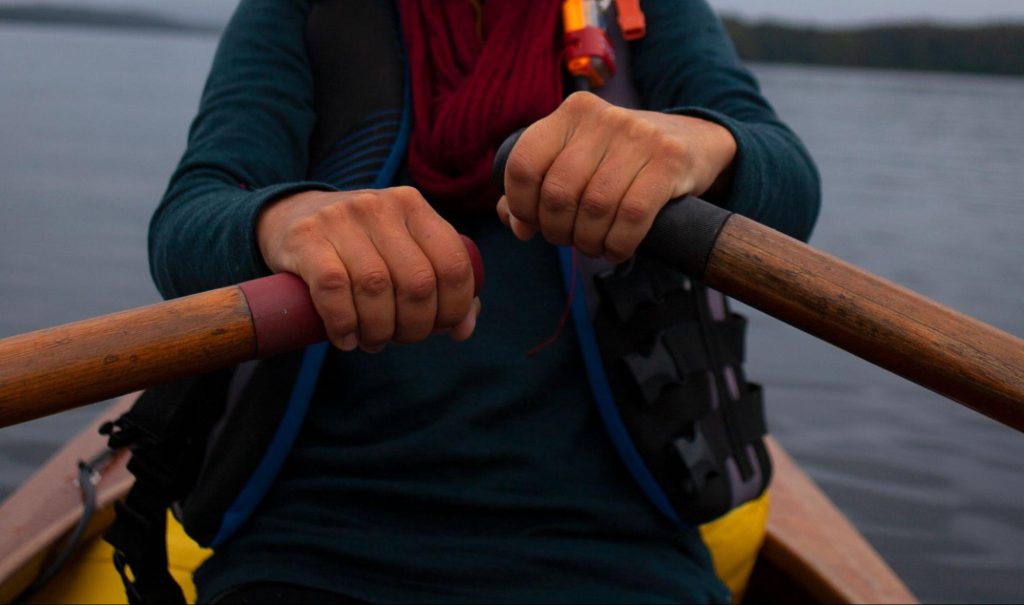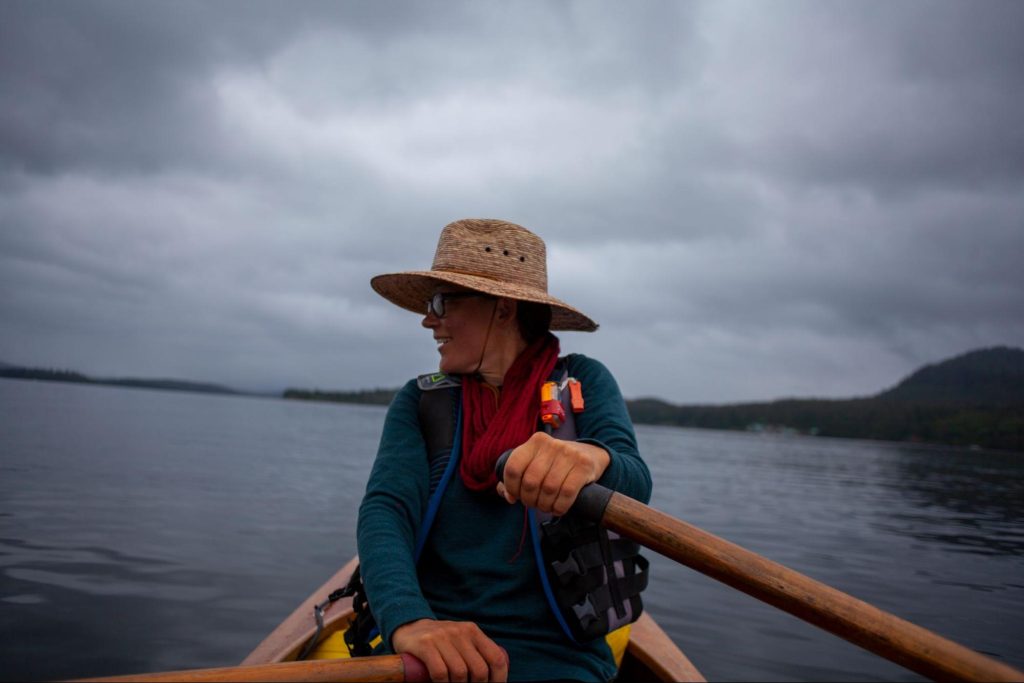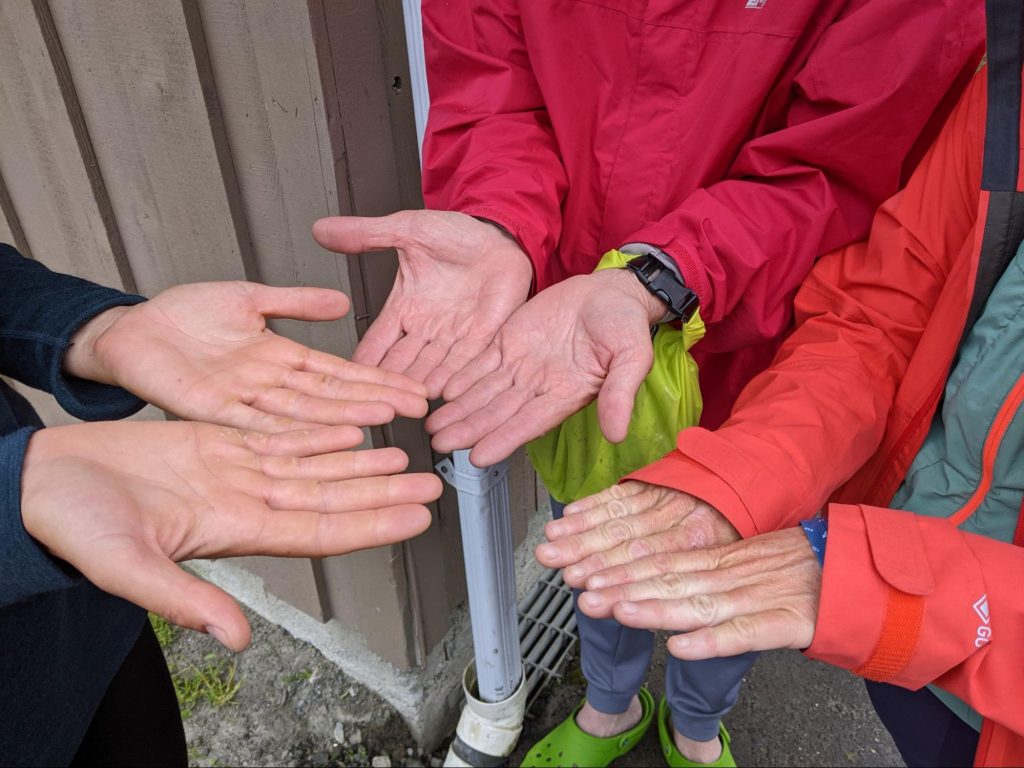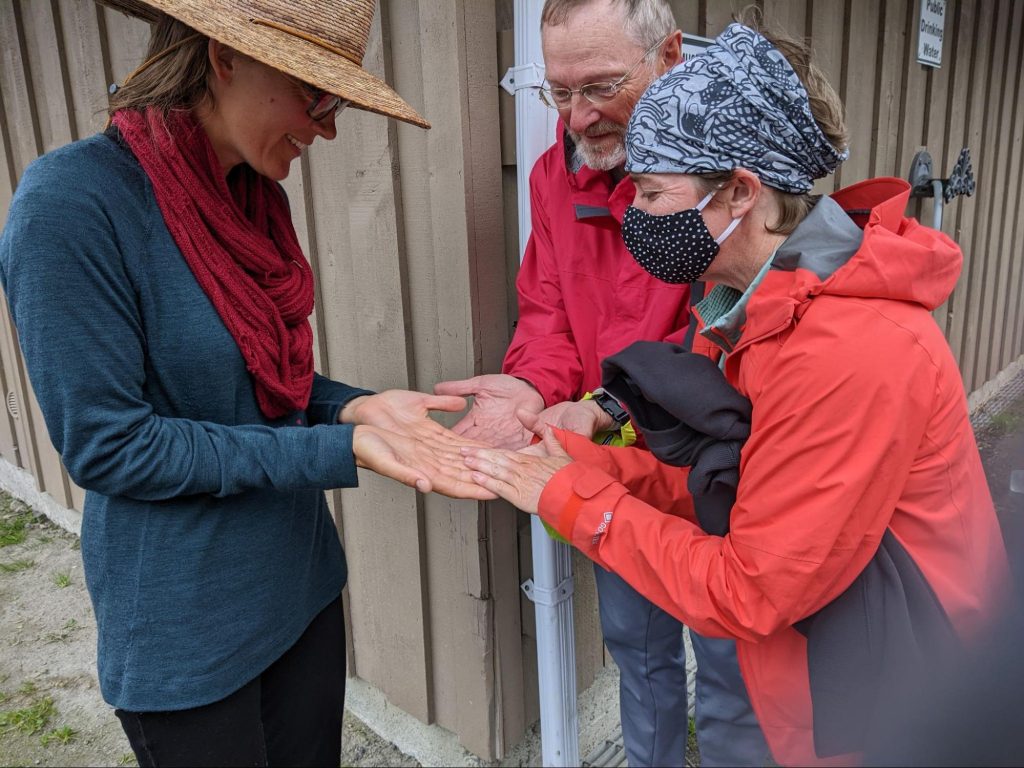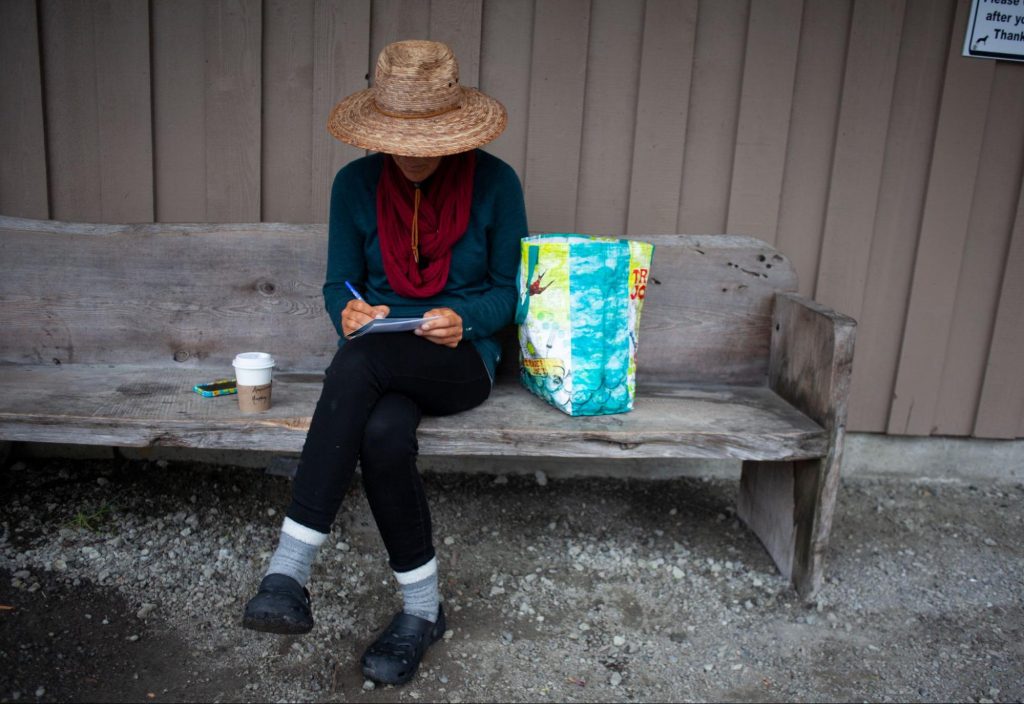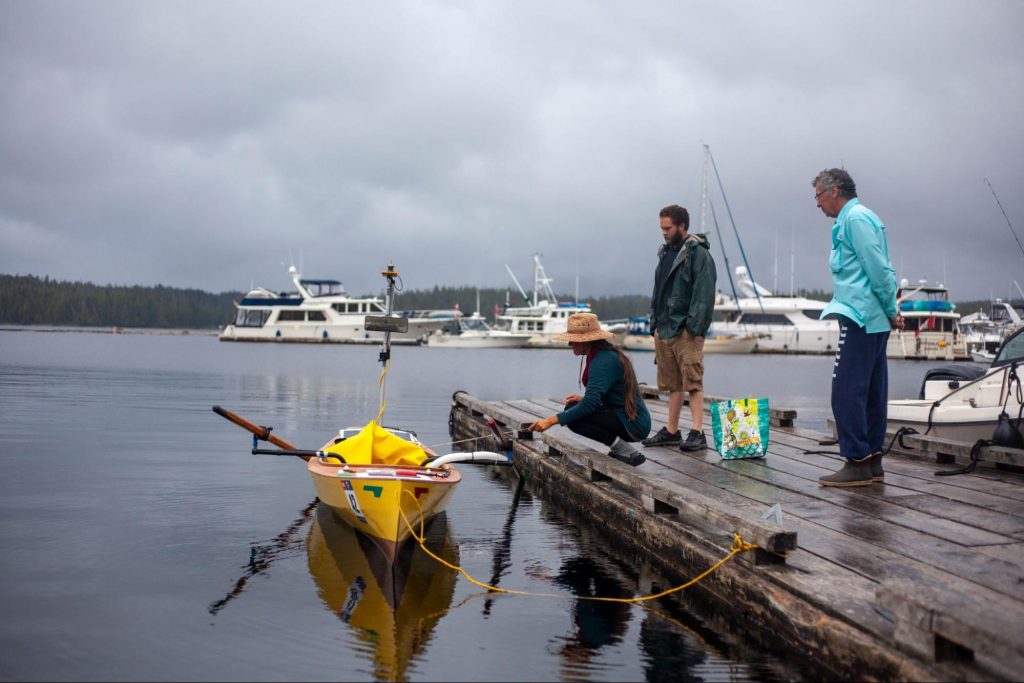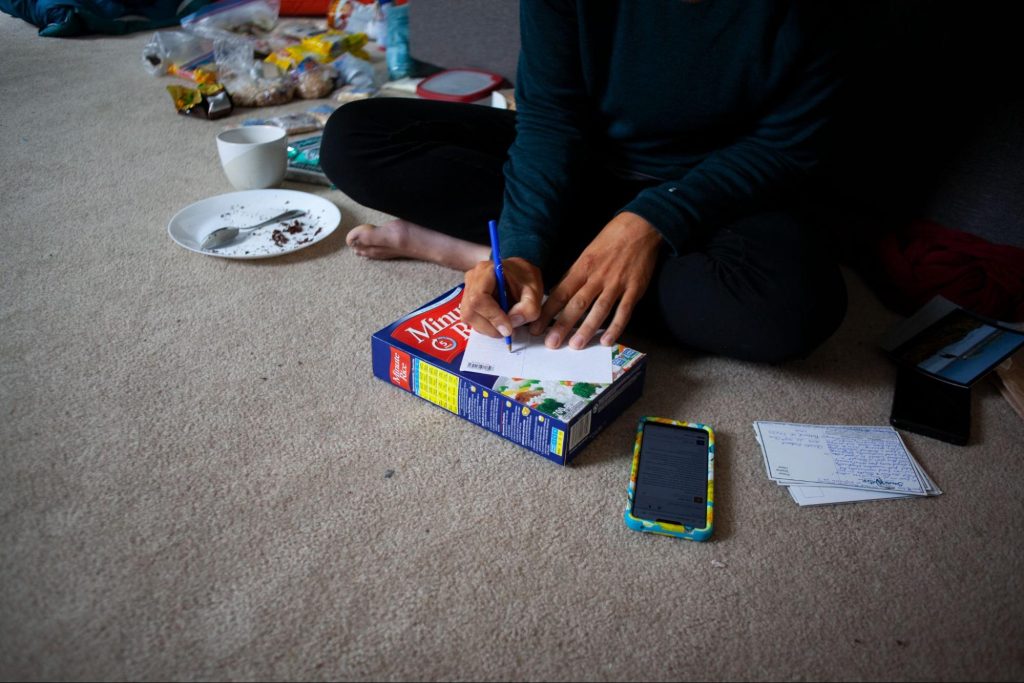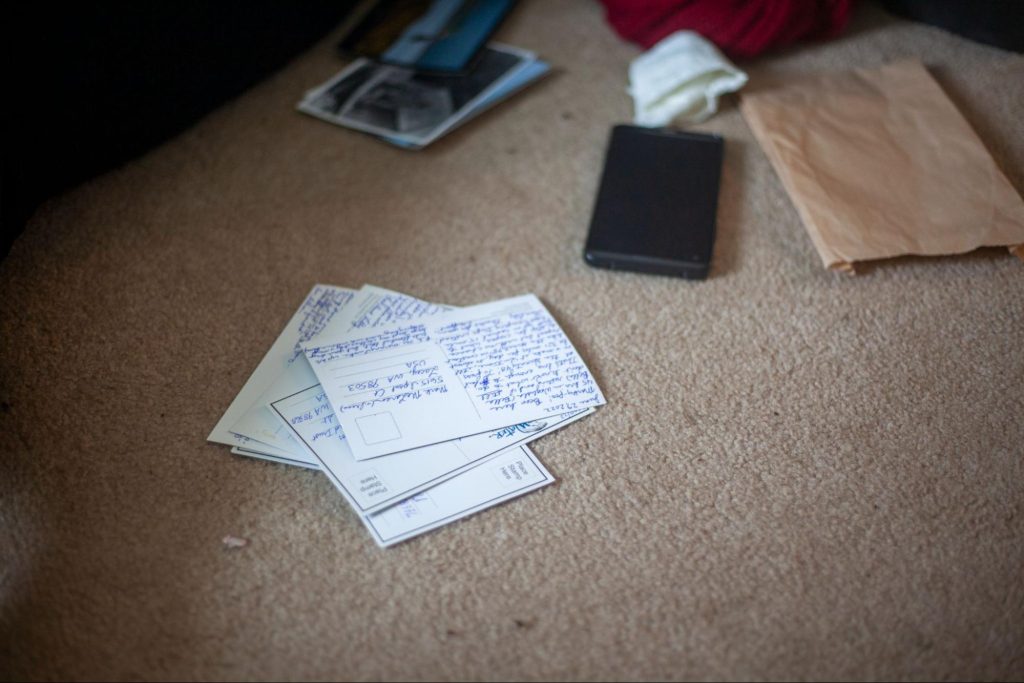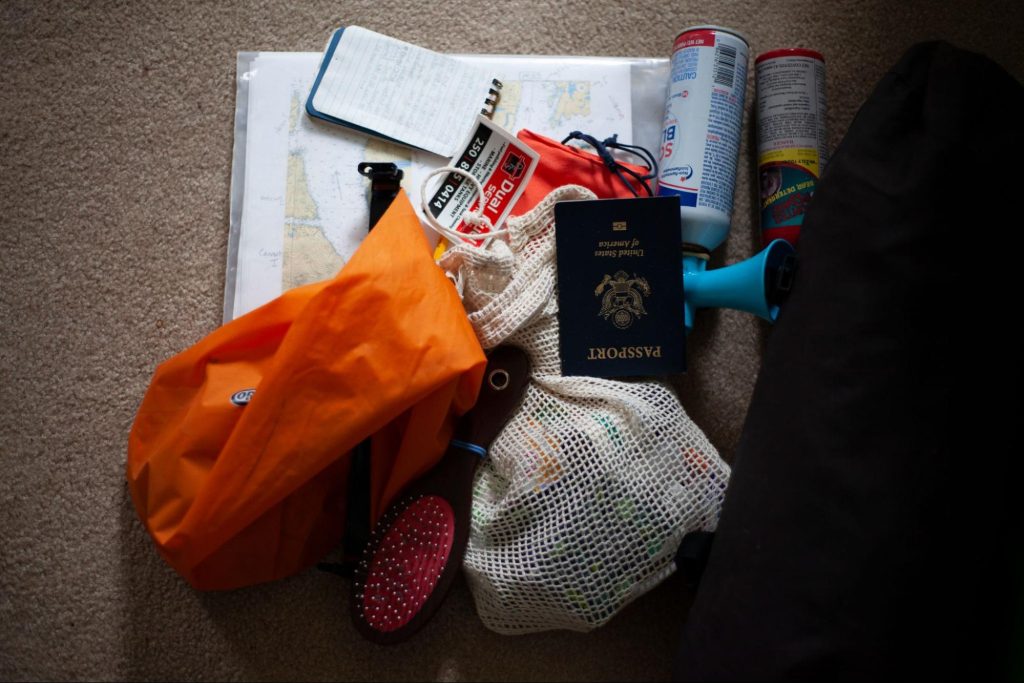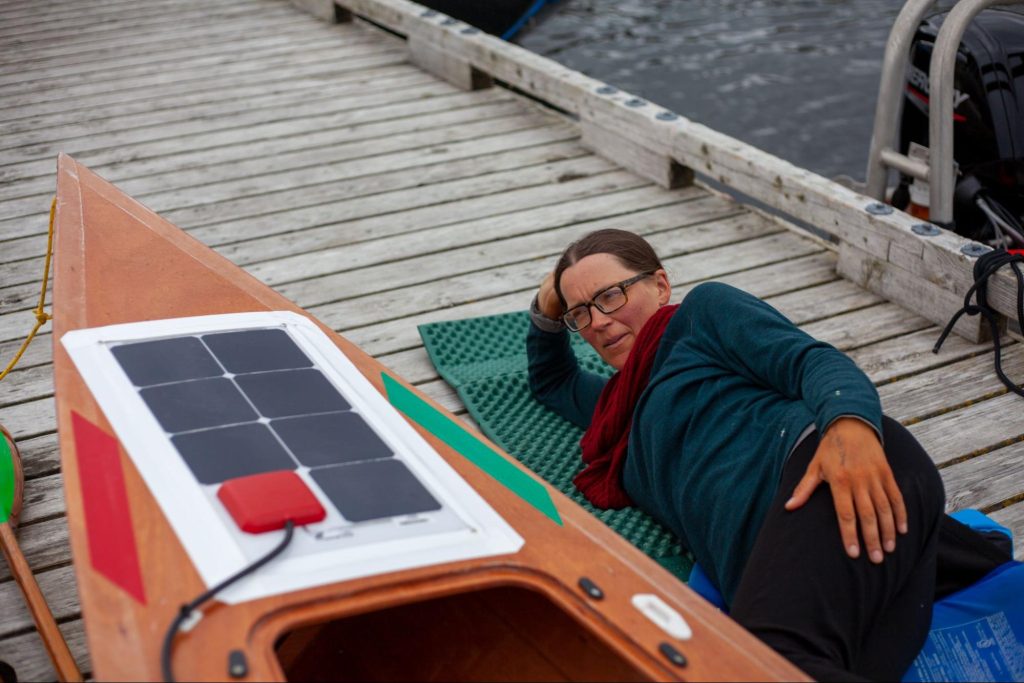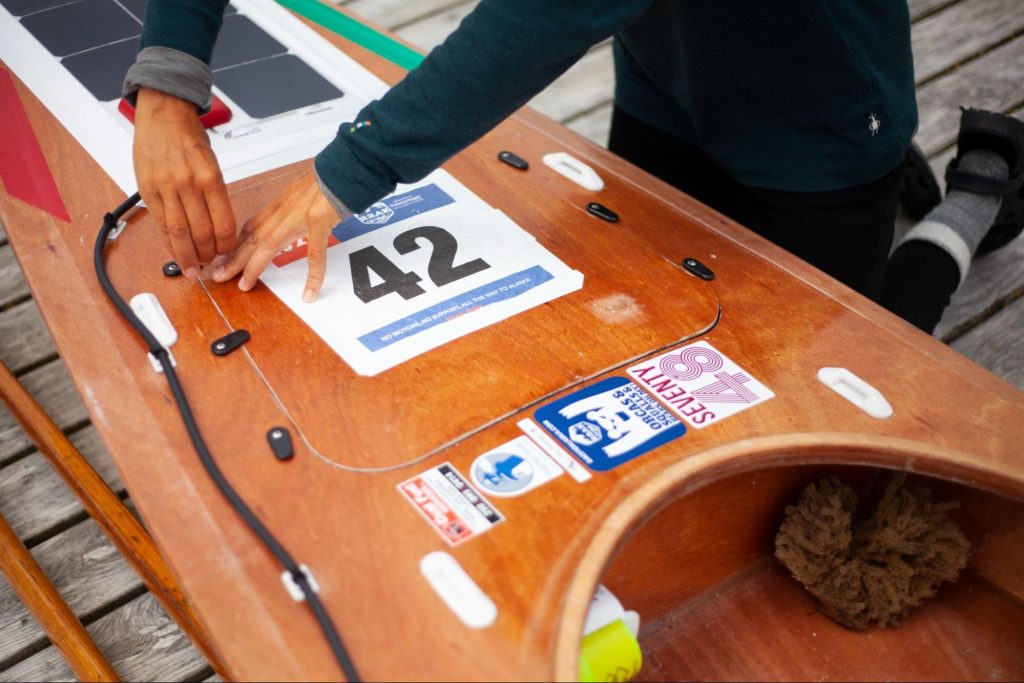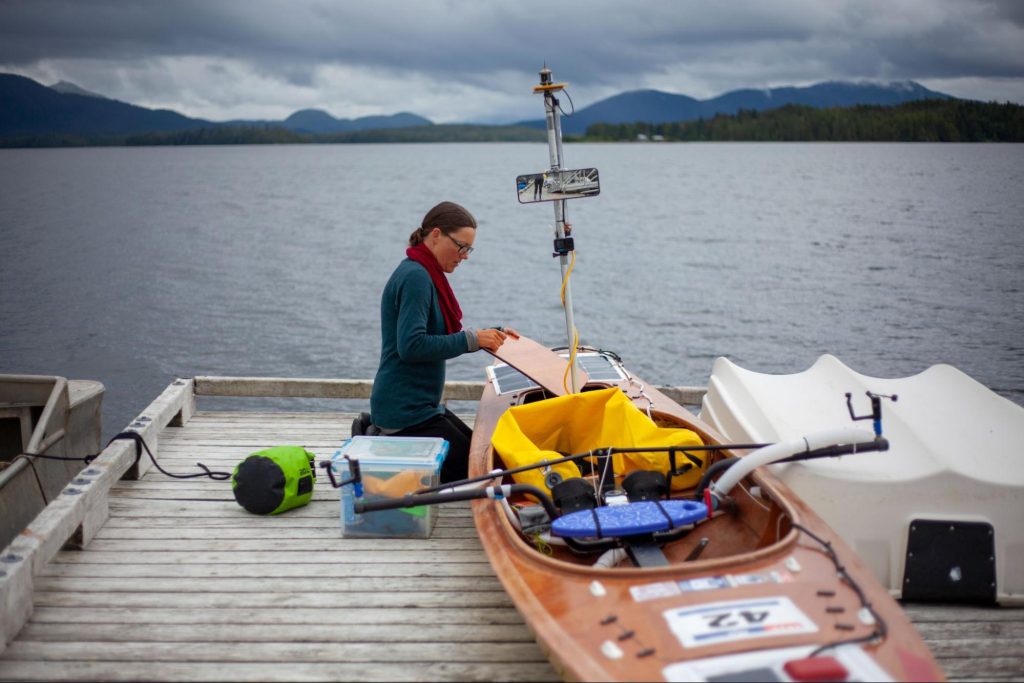June 30, 2022
By Lynnette Oostmeyer, Field Reporter
Lillian Kuehl, Team Interstice, rowed alone for five days after her unplanned racing partner Bob McCall, Team Zen Dog, had to bow out due to serious blisters on his hands.
“So there’s this thing that happens sometimes when people are on medications for their mental health,” Lillian said. “They get on medication and their issues are resolved, they feel better. They’re like, ‘This is awesome, my issues went away, I think I can wean off of these medications now.’ And then of course the issue reappears because the medications were the solution. That’s how I felt about Bob leaving me.”
After they had met up in Seymour Narrows, Lillian had been feeling better about the race overall. So when Bob left, he took with him some of her newly built confidence. She was facing some of the most infamous sections of the course, including Cape Caution. These five days tried her patience to deal with her fears. She described seeing orcas, and instead of the usual wonderment and joy it would bring her, it just brought dread. Her boat sits so close to the water and has an unfortunately similar shape to that of a seal. So she felt the need to turn on music to make sure the orcas did not mistake her as a potential meal. She said she had never experienced a reaction like that on the water.
“I find I’m really missing my sailboat because my sailboat takes care of me, and my rowboat challenges me,” Lillian said. “Especially being alone, it’s like a certain bond with my sailboat, that it’s there for me, it’s my protector, it carries me. I feed it, I trim its sails, and I do what it needs in order for it to keep going, and then it goes for me. Whereas the rowboat is set up to allow me to make it move through the world. It’s not that anthropomorphized bond that you get on a sailboat.”
When Lillian arrived in Bella Bella, BC, on Monday she had already decided that she wanted to go home. But after learning that the next ferry wasn’t until Thursday, the uncertainty had time to creep back in. Self-reflection and self-care would be the center of everything with that Thursday deadline in mind.
She was offered a place to stay by healthcare worker Charmaine Lingard who was working with the community in Bella Bella, as well as waiting for her husband on Team Fire Escape to arrive. Lillian was able to dry out all her gear and had a warm place to sleep while she mulled over her options.
Charmaine invited Lillian to her personal daily spot of relaxation and reflection. A long walk down a gravel road led to a spot that nature has reclaimed, after years of hosting a vibrant floating hotel. They took turns chatting and sitting in silence.
The next day Lillian paddled over to Shearwater to find another R2AK team, Fix Oder Nix, that had stopped there for the night. At the start of the short trip, she expressed that maybe she should carry on to Alaska.
But by the end, she was again leaning towards going home. Her self-care in Shearwater included buying and filling out postcards for loved ones, comparing battle wounds with Team Fix Oder Nix, and chatting with some adoring race fans.
That night she thought she might keep going, she even spread out all her food on the living room floor to plan, but then woke up the next morning and said “Just no. My heart is just not there. I’m going home.” Her dad always tells her this saying when she’s upset, “Things will be better in the morning.” She said if she wakes up and things aren’t better in the morning, she takes that as a pretty genuine sign that something is off. “I might wake up creaky and not wanting to leave my warm bed, but then there’s also this powerful aversion to what I thought I wanted to do, and that was my feeling this morning.” So she spent a quiet day in Bella Bella, with the nagging feeling of decision-making off her mind. She organized her things, finished writing her postcards, ate popsicles, and prepped her boat for the ferry ride.
“I did Johnstone Strait, I did Seymour Narrows, I did Cape Caution,” Lillian said. “That’s good, those are all the steps to Ketchikan. I could keep going on to Ketchikan, but I just don’t want to. I don’t want to be alone. I don’t want to be afraid.” She said people might tell her that she’ll regret it if she stops now, but she thinks it’s also possible to regret it if she keeps going. “It could affect my relationship with my boat, with the water,” she said. “It could make me not want to be out there again.” Having the time and space in Bella Bella created the opportunity for Lillian to really think about why she was in the race, and what she was willing to put herself through.
“To get yourself all the way to Alaska, they say it comes down to a broken boat, a broken body, or a broken spirit,” Lillian said. “Saying that my spirit is broken feels a little harsh; I am a complete human with many dreams, aspirations, and a spirit.”
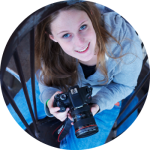 Lynnette Oostmeyer, field reporter
Lynnette Oostmeyer, field reporter
Lynnette is a freelance visual journalist based in northwestern Oregon, who focuses on documentary photography and short documentary filmmaking.
@lynnetteoostmeyer
